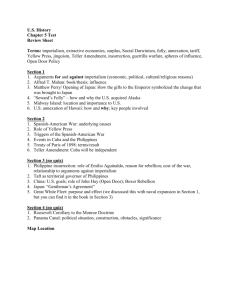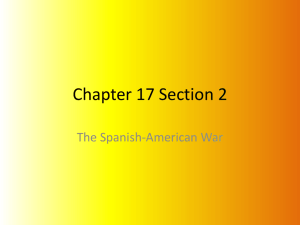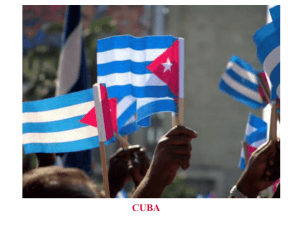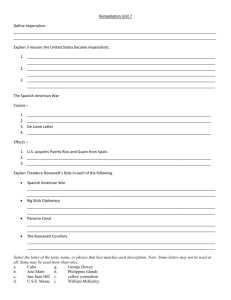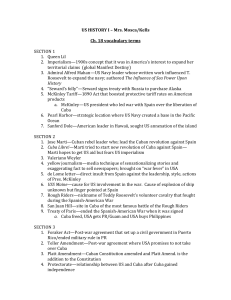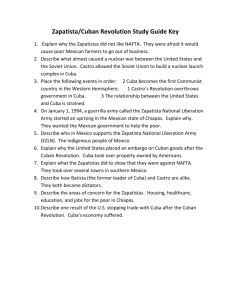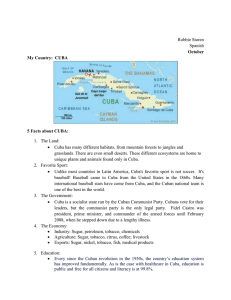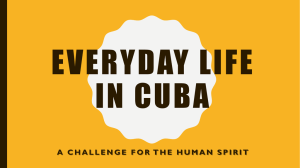“America Expands Influence”
advertisement
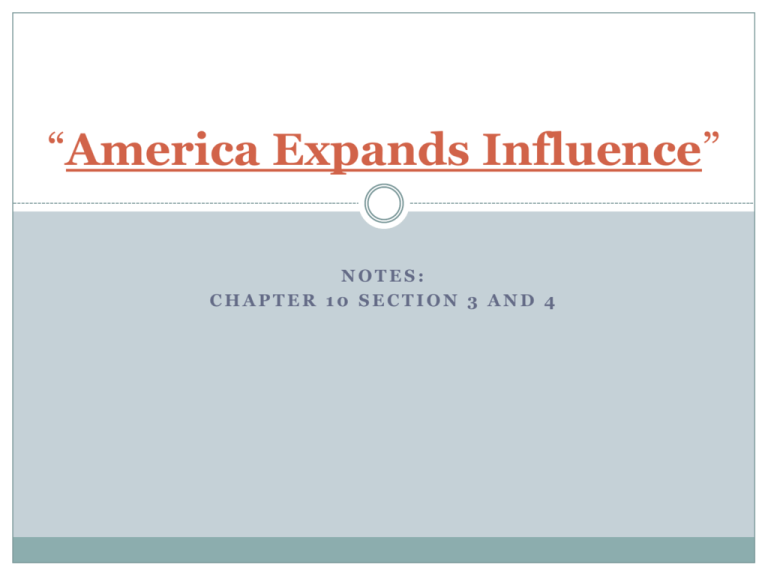
“America Expands Influence” NOTES: CHAPTER 10 SECTION 3 AND 4 I.) Territory of Puerto Rico A. During Spanish-American War controlled by military 1. General Nelson A. Miles B. Territory seen as strategically important 1. U.S. presence in Caribbean/protection of future canal C. Foraker Act (1900): passed by Congress that ended military rule in Puerto Rico & set up civil govt. 1. governor, upper house, lower house 2. 1917 given U.S. citizenship II.) Territory of Cuba A. Teller Amendment (1898): states U.S. has no intention of taking over Cuba B. Treaty of Paris: ends Spanish-American war; declares Cuba’s independence 1. Jose Marti: Cuban patriot fears U.S. will dominate politics of Cuba 2. American military govt. aides Cuban people & economy C. 1900 Cuban Constitution is adopted 1. Platt Amendment(1901): U.S. provisions added to Cuban Constitution & Cuba become U.S. “protectorate” WHY? To protect American business interests!!! III.) Territory of the Philippines A. Treaty of Paris calls for U.S. annexation of Philippines Outcome: Filipino outrage leads to revolt lead by Emilio Aguinaldo in 1899 B. Philippine-American War: takes U.S. 3 years to halt rebellion; claimed 4,000 lives; cost 400 million Outcome: new govt. set up with: president, upper house, and lower house C. Becomes independent republic July 4, 1946 IV.) Foreign Influence in China A. China seen as potential market for American products 1. Europe has been claiming colonies in China for years B. U.S. Secretary of State John Hay issues the “Open Door Notes” in 1899 1. proposed nations share trading rights in China; no one nation will have a monopoly over trade w/China C. Boxer Rebellion: Cause: secret Chinese groups who resented Western domination; attack missionaries/foreigners Outcome: combined forces march to capital & halt rebellion D. Effect of Boxer Rebellion 1. U.S. fears European nations will attempt to gain more 2. John Hay issues second series of “Open Door” notes E. Open Door Policy: foundation of American foreign policy 1. U.S. economy depended on exports 2. U.S. has right to intervene to keep foreign markets open 3. closing of a country to U.S. threatened U.S. survival V.) Opposition to Imperialism A. William McKinley re-elected in 190o shows majority of Americans favored his policies B. Anti-Imperialist League: opposed Imperialism; U.S. should not rule other people without their consent C. Election of Theodore Roosevelt & Woodrow Wilson will continue U.S. influence around the world

